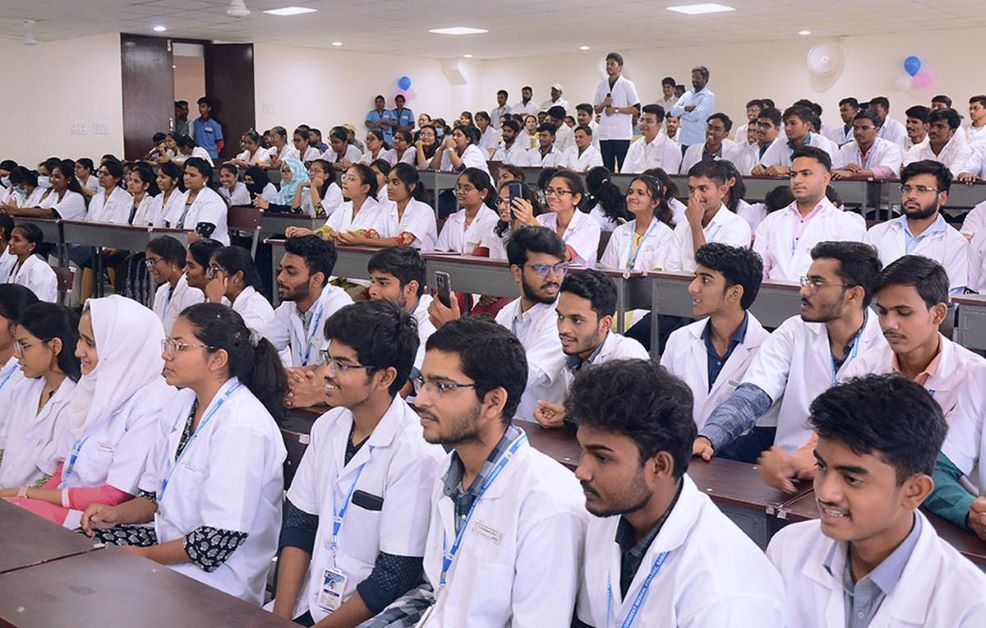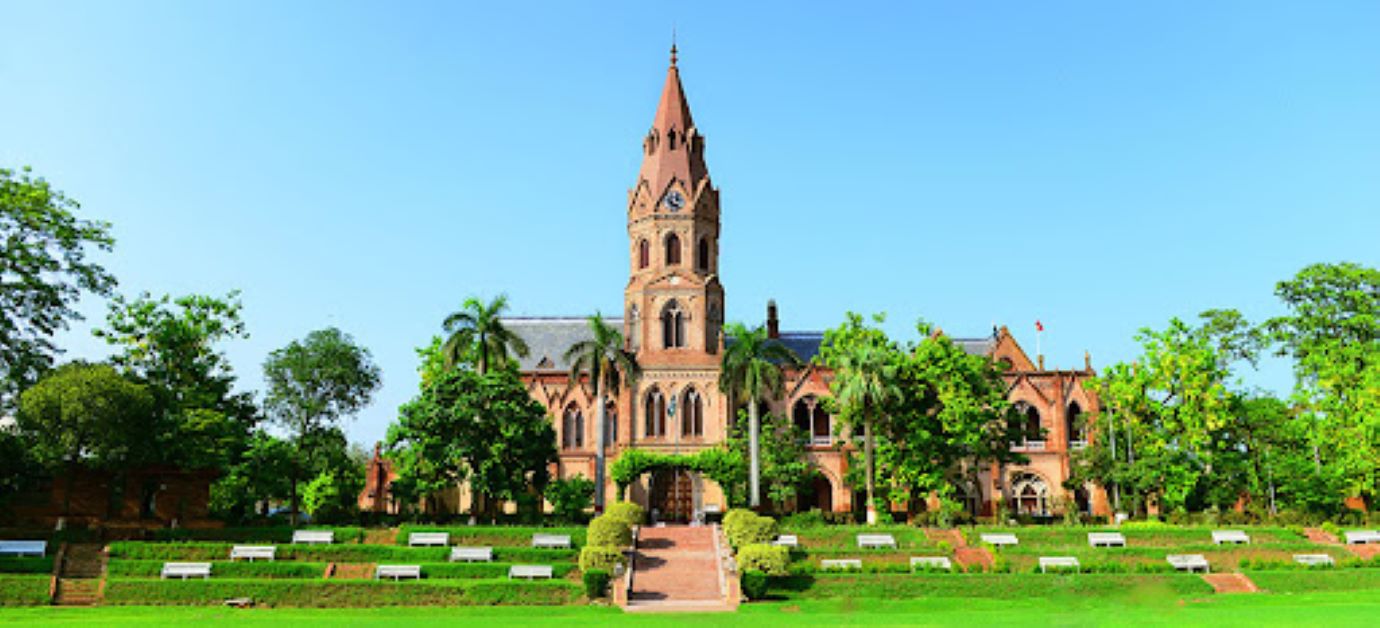In a groundbreaking move aimed at transforming the landscape of medical education in Pakistan by Pakistan’s Ministry of National Health Services, the government has introduced a new tuition fee cap policy for private medical and dental colleges. This decision is part of a broader effort to make medical education more affordable, transparent, and accessible to students from all walks of life. The new regulations, approved by a special committee led by Deputy Prime Minister Ishaq Dar. Ishaq Dar promise to bring much needed relief to students and their families.
Making Medical Education Affordable
For many years, private medical colleges in Pakistan have charged students increasingly high fees, sometimes reaching up to 3.5 million rupee annually. These costs placed immense pressure on families and often forced students to either abandon their dreams or seek education abroad.
This change is not just about numbers it is about creating a fair playing field for all aspiring doctors and dentists. The policy ensures that private institutions cannot arbitrarily raise their fees, and any increase must be aligned with the Consumer Price Index (CPI), a standard measure of inflation.
Clear Oversight by PMDC
One of the most important aspects of the new tuition regulations is the involvement of the Pakistan Medical and Dental Council (PMDC). The PMDC has been given the authority to enforce the new fee cap policy. Ensuring that private medical colleges in Pakistan adhere strictly to the rules.
The PMDC will be responsible for monitoring all institutions, reviewing their fee structures, and approving any adjustments based on CPI. In case of violations, the council has the power to take action against the colleges involved. This regulatory oversight is a significant step forward in establishing accountability and fairness within the medical education system.
Positive Impact on Students
The newly introduced fee cap brings multiple advantages for medical students in Pakistan:
- Lower Financial Pressure: Students are now protected from paying extremely high tuition fees.
- Wider Access to Education: More students from various social economic backgrounds can afford to study medicine.
- Predictable Cost Structure: The policy stops sudden fee hikes, making it easier for families to plan ahead.
- Focus on Learning, Not Finances: With fewer financial worries, students can concentrate better on their studies.
- Encouragement for Merit-Based Admissions: More fair and consistent fees can help reduce reliance on wealth and promote admissions based on merit.
Bringing Uniformity and Fairness to Private Medical Colleges
Until now, there was a lack of consistency in how private medical colleges in Pakistan set their fees. Some well-known institutions charged significantly higher amounts than others. Creating an uneven landscape where only the wealthiest students could afford a quality medical education. The new tuition fee cap policy changes that. It brings uniformity and transparency, ensuring that all students have a fair chance, regardless of their financial background.
This policy applies to all private medical and dental colleges across the country, including prestigious institutions such as Aga Khan University. No college will be allowed to exceed the maximum fee limit. All must justify any fee increases based on inflation, as monitored by the Pakistan Medical and Dental Council (PMDC).
Encouragement for Colleges to Maintain Quality
While some private medical colleges may face challenges in adjusting to the new fee structure. The long term impact is expected to be positive for the institutions as well. The tuition cap provides a clear framework within which colleges can operate. They now have clear guidelines for setting and adjusting fees, which will lead to more predictable and stable financial planning.
More importantly, colleges will be encouraged to maintain and even improve the quality of education they provide. Instead of competing through high tuition fees, institutions will now need to differentiate themselves through academic excellence, quality faculty, infrastructure, and student support services.
Strengthening the Healthcare Sector
The government’s decision to cap tuition fees is not just about education. It is also about the future of healthcare in Pakistan. By making medical education more affordable and accessible, the country can train more doctors and healthcare professionals. This, in turn, will help address the shortage of qualified medical staff in hospitals and clinics across the country.
Deputy Prime Minister Ishaq Dar has emphasized that this reform is part of a broader vision to enhance the quality of medical education in Pakistan. He reiterated the government’s commitment to implementing fair, transparent, and student-friendly educational policies. That will ultimately lead to better healthcare outcomes for all citizens.
Looking at the Past to Understand the Change
The new tuition fee cap has broader benefits beyond just education. It positively impacts the country’s healthcare system in several ways
- Improves Accessibility: More affordable medical education allows a larger number of students to enter the field.
- Addresses Doctor Shortages: With more students becoming doctors, the policy helps reduce the shortage of qualified medical professionals in hospitals and clinics.
- Enhances Healthcare Quality: A well-trained and diverse medical workforce contributes to better patient care across Pakistan.
- Aligns with Government Vision: Deputy Prime Minister Ishaq Dar highlighted this reform as part of a long term strategy to improve both education and national healthcare outcomes.
A Step Toward a Brighter Future
The tuition fee cap policy is not just a quick fix it is a long-term solution that is expected to create a more balanced, fair, and high quality education system. It sets a standard that can serve as a model for other sectors of education as well.
This initiative will also discourage the practice of unregulated tuition hikes in private medical colleges. Promote the development of transparent financial policies across all educational institutions. Over time, more well-trained doctors will enter the workforce and contribute to national development, strengthening the healthcare system.
About Parhlo Pakistan
At ParhloPakistan, we strive to bring you the latest news, insightful updates, and meaningful stories that matter to everyday Pakistanis. Whether it’s education, policy reforms, technology, or entertainment, we cover a broad range of topics with a unique voice that reflects the hopes and challenges of the nation. Our goal is to keep you informed, inspired, and connected with everything happening around you. For trusted content that resonates with Pakistan’s youth and beyond, visit ParhloPakistan today.
Conclusion
The new tuition regulations for private medical colleges in Pakistan mark a historic step forward in making quality medical education more accessible and affordable. By capping annual tuition fees and empowering the PMDC to ensure compliance. The government is addressing long standing concerns about fairness and transparency in the education sector.
This move not only reduces the financial burden on students and their families but also encourages institutions to maintain high academic standards within a clearly defined framework. As Pakistan continues to invest in the future of its healthcare system. Reforms like these pave the way for a stronger, more inclusive, and better-educated society.
Explore our blog for expert insights, updates on medical education reforms, and the latest tuition fee regulations in Pakistan.




